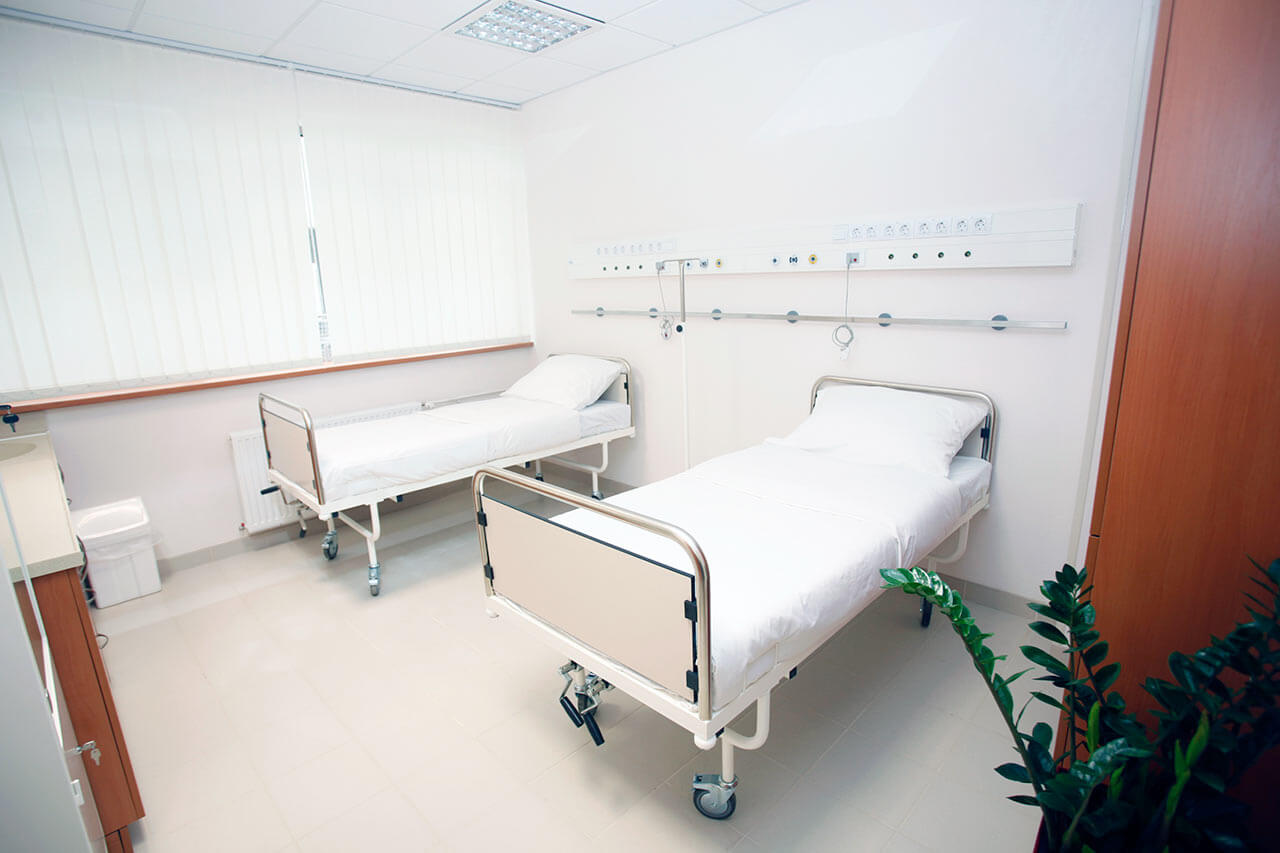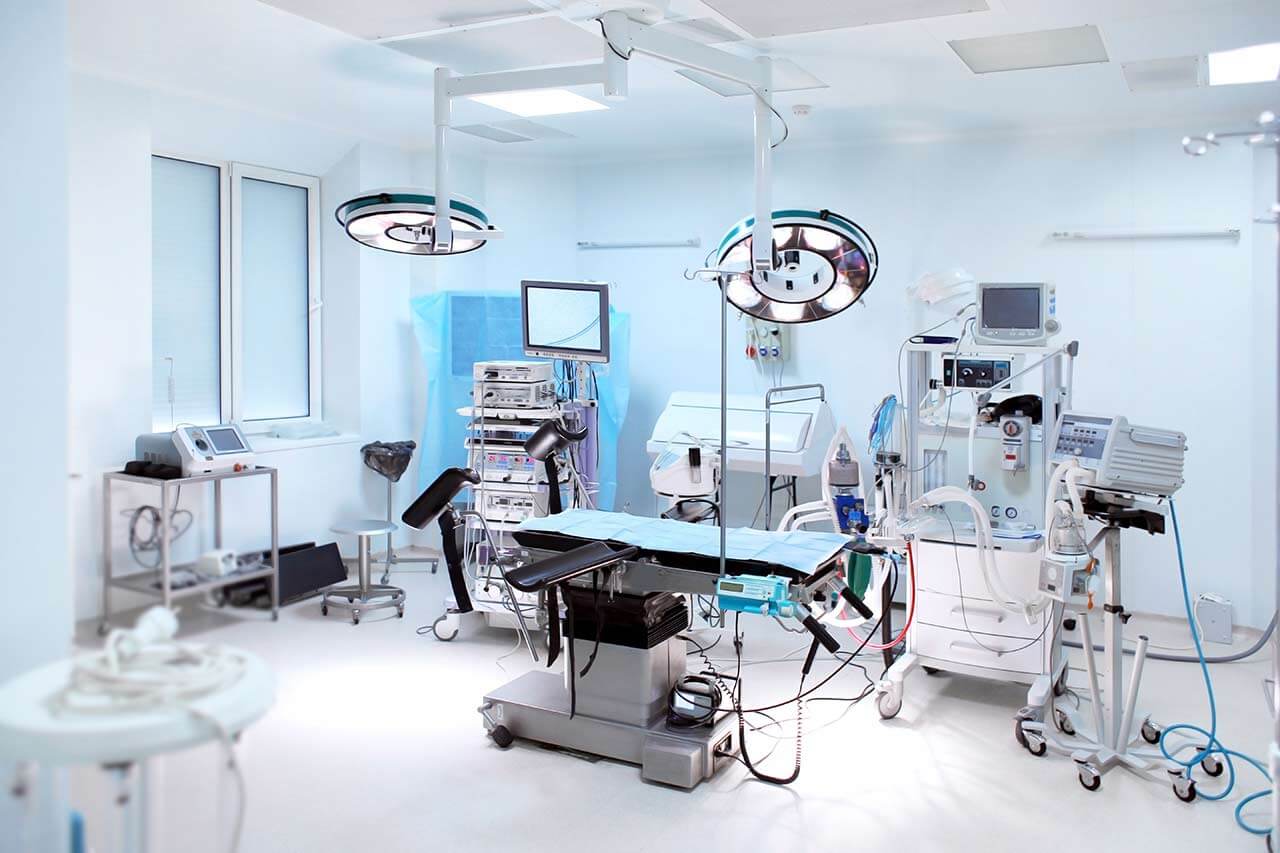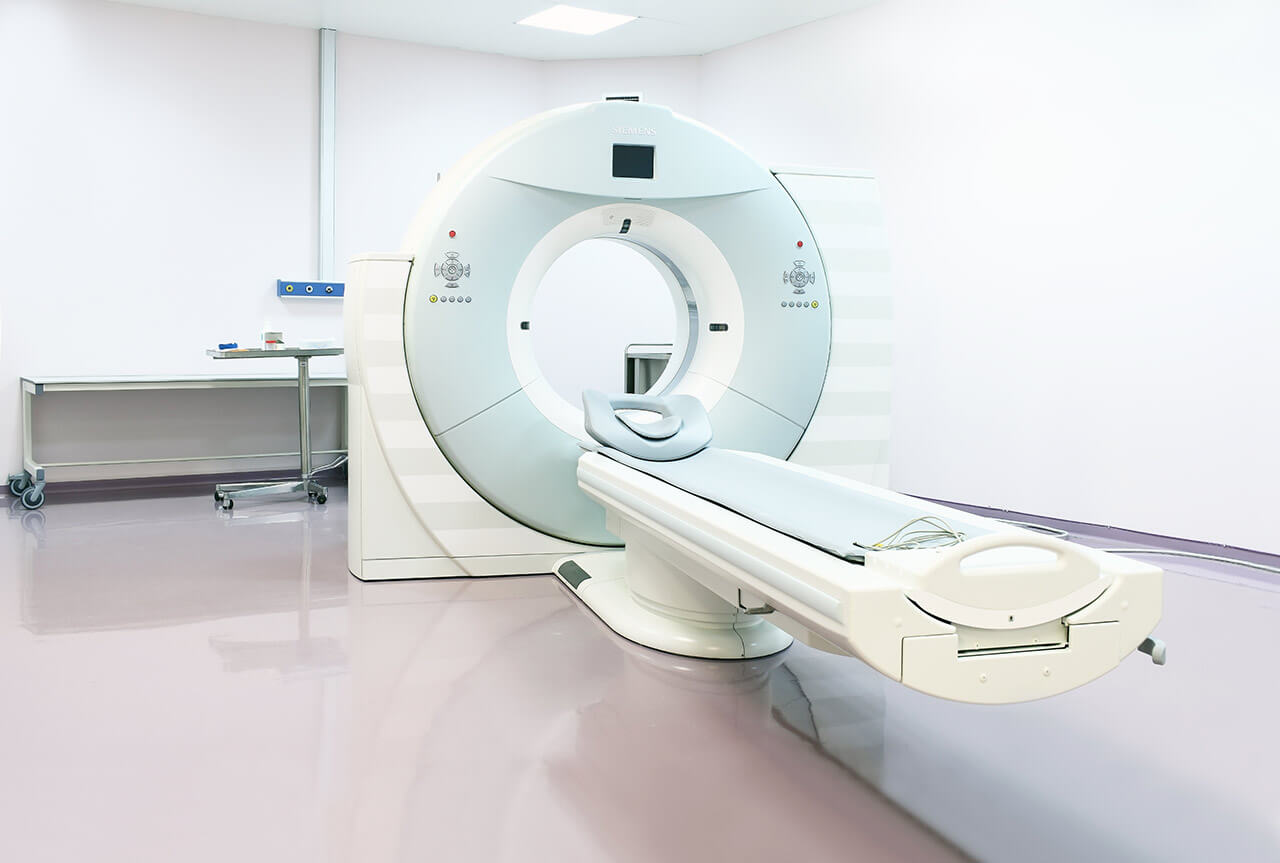
The program includes:
- Initial presentation in the clinic
- clinical history taking
- review of medical records
- physical examination
- laboratory tests:
- complete blood count
- biochemical analysis of blood
- TSH-basal
- inflammation indicators
- indicators blood coagulation
- ultrasound
- MRI scan of the elbow joint
- x-ray of the elbow joint
- puncture of the joint capsule with
microbiological and bacteriological analysis - nursing services
- services of all leading experts
- explanation of individual treatment plan
Required documents
- Medical records
- Ultrasound scan (if available)
Service
You may also book:
 BookingHealth Price from:
BookingHealth Price from:
About the department
The Department of Orthopedics and Trauma Surgery at the Asklepios Hospital Barmbek Hamburg offers all the possibilities of modern medicine for the diagnostics and treatment of musculoskeletal diseases and injuries. The department's medical team focuses on patients with osteoarthritis of large joints, benign and malignant bone and soft tissue tumors, arm, leg, and pelvic fractures, as well as spinal fractures. The department's doctors regularly perform arthroplasty to replace small and large joints. The specialists perform hip, knee, ankle, shoulder, elbow, and big toe joint replacement surgery. Surgical interventions for partial and total joint replacement are performed using minimally invasive techniques. The department also successfully performs arthroscopic joint surgery, for example, for cruciate ligament tears, meniscus injuries, and hip impingement syndrome. The department's medical team also performs cartilage transplantation. The procedure ensures excellent results and, in many cases, allows patients to avoid joint replacement surgery. The department has a specialized unit for treating patients with bone fractures, soft tissue injuries, and sports injuries, where a team of experienced doctors is on duty round the clock. The Head Physician of the department is Prof. Dr. med. Frank Lampe.
The priority clinical tasks of the department's physicians include knee, hip, and shoulder joint replacement surgery. The main indication for arthroplasty is arthrosis (degenerative joint changes). In patients in the early stages of the pathological process, the specialists use only drug therapy and physiotherapy, but these methods can usually only slow down the progression of the disease. Joint replacement surgery is the last-line treatment. Surgery is prescribed if there is no result from conservative therapy. All arthroplasty procedures are performed by the department's orthopedists using minimally invasive techniques. A surgical approach is provided through small incisions in the skin and soft tissues, thanks to which recovery in the postoperative period is faster and the patient experiences virtually no pain. When performing joint replacement surgery, surgeons use advanced computer navigation systems to ensure the most accurate positioning of the prosthesis, which plays an important role in the success of surgical treatment. The department also successfully performs revision arthroplasty, which is a highly complex intervention.
The department's orthopedists brilliantly perform arthroscopic interventions on the knee, hip, shoulder, and ankle joints. The specialists resort to arthroscopic surgery in cases of meniscal and cartilage tissue traumatic injuries, ligament tears, patella dislocation, hip and shoulder impingement syndrome, dislocated shoulder, ankle ligament tears, and osteochondritis dissecans of the ankle joint. An arthroscopic intervention involves inserting an arthroscope into the joint cavity through a small incision. The arthroscope is equipped with a light source and a tiny camera, continuously transmitting real-time images at multiple zooms to a screen. The surgeon can thus perform the necessary manipulations using thin and long instruments under the guidance of images on the screen.
In the field of traumatology, the department performs conservative and surgical treatment for arm, leg, and pelvic fractures, spinal injuries, and sports injuries. The doctors strive to use only conservative therapy by performing closed repositioning and immobilization of the bone fragments with plaster, polymer, or soft bandages. In complex clinical cases, surgical treatment such as osteosynthesis might be required. During the operation, the surgeon connects and securely fixes the bone fragments with special constructs, such as a metal screw, plate, rods, intramedullary nails, external fixation devices, etc. In most cases, osteosynthesis surgery is performed using minimally traumatic surgical techniques.
The department has gained vast experience in the surgical treatment of spinal fractures using dorsal spondylodesis and balloon kyphoplasty. Dorsal spondylodesis involves the implantation of a system of screw rods to repair a spinal fracture. The intervention is performed using minimally invasive techniques through small skin incisions using specialized instruments. To maximize the accuracy and safety of surgical manipulation, the procedure is performed under imaging guidance. The operation allows the patient to quickly recover from the fracture, get rid of pain, and restore mobility. When performing balloon kyphoplasty, the surgeon inserts a special balloon into the vertebral body, which is inflated under pressure, thereby repairing the vertebral deformity. In the next phase of the procedure, the doctor removes the balloon, and bone cement is introduced into the vertebral body in its place. The intervention is also performed using minimally invasive techniques under local anesthesia.
The department's main clinical focuses include:
- Orthopedics
- Hip, knee, ankle, shoulder, elbow, and big toe joint replacement surgery, including revision surgery to replace previously implanted prostheses
- Arthroscopic surgery
- Knee arthroscopic surgery
- Arthroscopic suturing of menisci and replacement of menisci when torn
- Arthroscopic surgery for cartilage injuries
- Microfracture for minor traumatic cartilage injuries
- Mosaicplasty (OATS) for moderate traumatic cartilage injuries
- Cartilage cell transplantation for severe traumatic cartilage injuries
- Arthroscopic surgery for knee ligament tears
- Arthroscopic surgery for knee dislocation
- Arthroscopic MPFL reconstruction for patellar dislocation
- Hip arthroscopic surgery
- Arthroscopic surgery for hip impingement
- Arthroscopic surgery for foreign bodies in the hip joint
- Arthroscopic surgery for traumatic hip labral injuries
- Shoulder arthroscopic surgery
- Arthroscopic surgery for shoulder instability
- Arthroscopic surgery for shoulder impingement
- Arthroscopic surgery for acromioclavicular joint injuries
- Ankle arthroscopic surgery
- Arthroscopic surgery for external ligament tears of the ankle joint: anatomical reconstruction and tenodesis using the Evans Zwipp procedure
- Arthroscopic surgery for traumatic ankle cartilage injuries
- Arthroscopic surgery for osteochondritis dissecans of the talus
- Knee arthroscopic surgery
- Surgical repair of O- and X-shaped leg deformities
- Surgical repair of the hallux valgus
- Surgical resection of benign and malignant bone and soft tissue tumors
- Surgical debridement of chronic wounds
- Bone and soft tissue septic surgery
- Surgery for acute and chronic joint infections
- Surgery for infection during osteosynthesis and fractures
- Surgery for periprosthetic infections
- Surgery for osteomyelitis and osteitis
- Surgery for degenerative inflammatory foot deformities, including diabetic foot syndrome
- Trauma surgery
- Conservative and surgical treatment of arm, leg, and pelvic fractures
- Conservative and surgical treatment of sports injuries
- Surgical treatment of spinal fractures
- Dorsal spondylodesis
- Balloon kyphoplasty
- Other medical services
Curriculum vitae
Professional Career
- 2004 Managing Senior Physician, Department of Orthopedics and Trauma Surgery.
- 2007 Head Physician, Center for Orthopedics and Arthroplasty.
- 2012 Professor (specialization: navigation technologies in joint replacement surgery and sports medicine), Hamburg University of Applied Sciences.
- 2013 Chairman of the Committee for External Quality Assurance of the Hamburg Association of Orthopedics and Trauma Surgery.
Additional Qualifications
- Special orthopedic surgery.
- Sports medicine.
Photo of the doctor: (c) Asklepios Klinik Barmbek
About hospital
The Asklepios Hospital Barmbek Hamburg is an academic hospital of the University of Hamburg. The hospital was opened in 2005, and today it is one of the best and most modern medical centers in Europe. The priority areas of specialization of the medical facility are emergency medical care and comprehensive treatment of cancer, urologic diseases, gastrointestinal diseases, and pulmonary diseases, as well as abdominal surgery and thoracic surgery. The hospital provides patients with top-class medical services that meet international standards.
The hospital has 620 beds. More than 36,000 inpatients and about 74,000 outpatients are treated here every year. The patients' health is in the safe hands of a highly professional team of over 1,600 doctors and nursing staff.
The hospital offers high-quality diagnostic and therapeutic services and strictly follows current clinical protocols. The hospital boasts modern infrastructure and state-of-the-art medical equipment. The hospital is one of the few in Europe where patients are successfully operated on using the da Vinci surgical system. The hospital also houses well-equipped endoscopy rooms, cardiac catheterization laboratories, laser surgery rooms, and operating rooms for arthroscopic interventions. All these technical resources contribute to effective and, at the same time, minimally traumatic treatment.
It is worth noting that the hospital has vast experience in serving international patients. According to the Medical Travel Quality Alliance (MTQUA), the Asklepios Hospital Barmbek Hamburg ranks among the top three medical centers worldwide for medical tourism.
The medical center also holds the international DIN EN ISO 9001:2015 quality certificate, attesting to the excellent medical services provided. For its outstanding achievements in oncology and surgery, the hospital has been awarded certificates from the German Cancer Society (DKG) and the German Society for General and Visceral Surgery (DGAV).
Photo: (с) depositphotos
Accommodation in hospital
Patients rooms
The patients of the Asklepios Hospital Barmbek Hamburg live in comfortable single and double rooms. Each patient room has an ensuite bathroom with a shower and a toilet. The patient room furnishings include an automatically adjustable bed, a bedside table, a table and chairs for visitors, a TV, a radio, and a telephone. Wi-Fi access is also available in the patient rooms.
Patients can also be accommodated in enhanced-comfort rooms, which additionally include a rest area with upholstered furniture and a working area with a desk and a reading lamp. The bathroom in the enhanced-comfort rooms includes necessary toiletries, changeable towels, bathrobes, slippers, and a hairdryer. The enhanced-comfort rooms correspond to the standards of a high-class hotel.
Meals and Menus
The hospital offers tasty and balanced meals. Patients receive several menus to choose from and can see the menu in advance using a special mobile application. The hospital takes patients' food preferences into account and offers a wide range of dietary and vegetarian dishes. Breakfast, lunch, and dinner are served in the patient's room.
There is a cozy cafeteria on the first floor of the hospital where one can enjoy a cup of aromatic coffee or delicious tea with a dessert. The cafeteria offers a wide selection of snacks and salads.
There is a small store on the territory of the hospital where one can buy fresh fruits, yogurts, sweets, and magazines.
Further details
Standard rooms include:
Religion
There is a prayer room on the first floor of the hospital where patients can find solitude for prayer.
The hospital has an evangelical pastor who is happy to talk with patients and support them in the process of their treatment.
Representatives of other religions are available upon request.
Accompanying person
Your accompanying person may stay with you in your patient room or at the hotel of your choice during the inpatient program.
Hotel
You may stay at the hotel of your choice during the outpatient program. Our managers will support you for selecting the best option.





